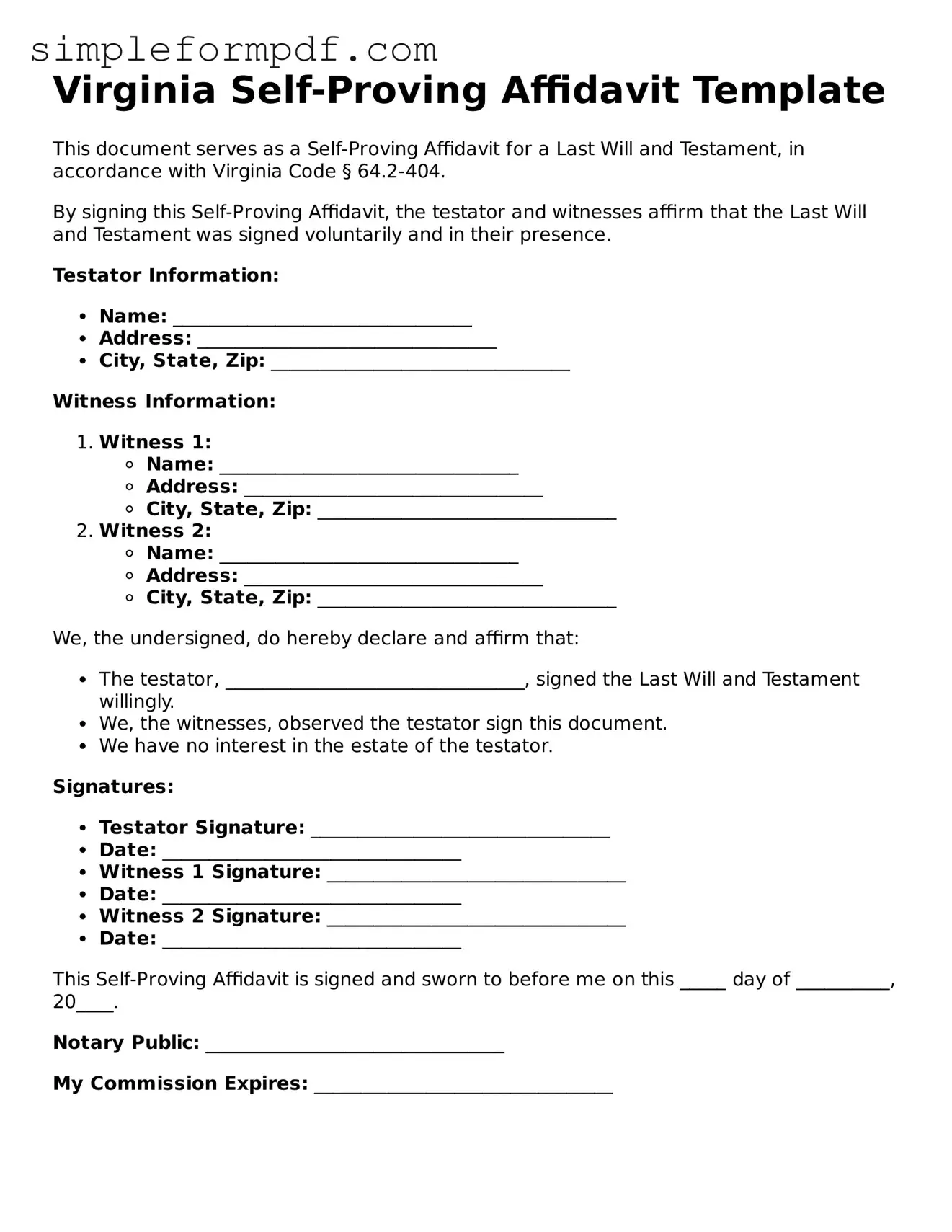Free Self-Proving Affidavit Form for the State of Virginia
The Virginia Self-Proving Affidavit is a legal document that allows a will to be validated without the need for witnesses to testify in court. This form provides a streamlined process, ensuring that the intentions of the deceased are honored while minimizing potential disputes. Understanding how to properly complete this affidavit is crucial for anyone involved in estate planning.
To fill out the form, click the button below.
Launch Editor

Free Self-Proving Affidavit Form for the State of Virginia
Launch Editor
Need instant form completion?
Finish Self-Proving Affidavit online in just a few minutes.
Launch Editor
or
Download PDF
